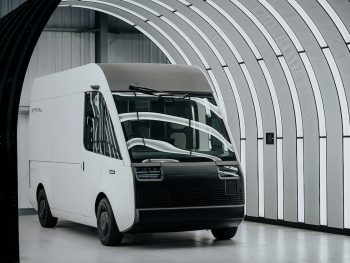EV startup Arrival to axe half its staff in latest restructure
Struggling electric vehicle startup Arrival is to cut its remaining workforce by around 50% to 800 staff under its latest efforts to slash operating costs.
It’s the third restructure within a year as the UK-headquartered firm turns its focus to the US in a move to ensure its survival during straitened times.
Combined with other cost reductions in real estate and third-party spending, the company expects to halve the ongoing cash cost of operating the business to approximately $30m per quarter. As of 31 December 2022, Arrival had cash on hand of $205m.
It also confirmed previous plans announced in October 2022 to shift its focus away from its UK operations and prioritise its resources on the development of its US van product, supported by incentives from the US government.
The business had already mothballed its plans for an electric bus and ride-hailing vehicle in July 2022 and had also cut 800 jobs “in response to the challenging economic environment”.
Arrival has now also appointed Igor Torgov as its new CEO to lead the planned restructuring of its business. The firm’s former EVP of digital takes over from interim CEO Peter Cuneo and brings experience in COO, CEO and leadership positions at Atol, Bitfury, Yota, Columbus IT and Microsoft.
Torgov commented: “Accepting this important role at a critical point in Arrival’s journey is a significant responsibility. Arrival has developed unique technologies in a market that has huge growth potential and can play a key role in addressing climate change. To unlock these opportunities, we need to make difficult decisions and to take swift action.”
He added that the latest restructuring plans would support the firm’s “journey to become a champion in innovative products and new, more efficient methods of vehicle production, particularly in the important US market for commercial electric vehicles”.
Arrival said it would share more details on its business plan, financial outlook and product milestones in a business update webcast planned for 9 March.
Its announcement further underlines the tough operating conditions for EV startups, which are being hit by supply chain issues as well as global economic problems and the war in Ukraine.
Earlier this month, UK battery startup Britishvolt collapsed into administration after plans for a rescue deal failed. The company had been working to launch a gigafactory in Northumberland, helping to ensure a future for battery production in the UK and supporting government plans to make the UK automotive industry a leader in electric vehicles.
But it was forced to postpone its plans due to “difficult external economic headwinds including rampant inflation and rising interest rates”, which then led to crucial government funding delayed.
While administrators EY are reported to have multiple companies bidding to take over Britishvolt’s intellectual property and staff, as well as the site, the deadline for a sale looms large.
The company’s demise has also led to criticism of the UK government’s lack of industrial strategy and its inability to compete with attractive subsidy packages offered in the US and the EU.
Parcel delivery firm Packfleet, which runs an all-EV fleet from its base in London, said Arrival’s shift to the US was also a blow for UK fleets looking to go electric.
Tristan Thomas, CEO and co-founder, commented: “It’s a shame to be losing our EV capabilities here in the UK, especially at a time when we need to be accelerating the green transition. With the expansion of the ULEZ on the horizon and the sale of new ICE vehicles set to be banned by 2030, the UK is in desperate need of electric vehicles – especially vans.
“Electric vans are in short supply. Logistics businesses across the country are competing to get their hands on new vehicles, and that presents a great opportunity for British-led EV manufacturers to capitalise upon. Courier companies are currently reliant on shipping vehicles in from abroad, and the industry would benefit hugely from a strong set of UK-based manufacturers.
“All-electric fleets will become ther norm in the next few years, and we need a manufacturing sector to keep pace and match demand.”








